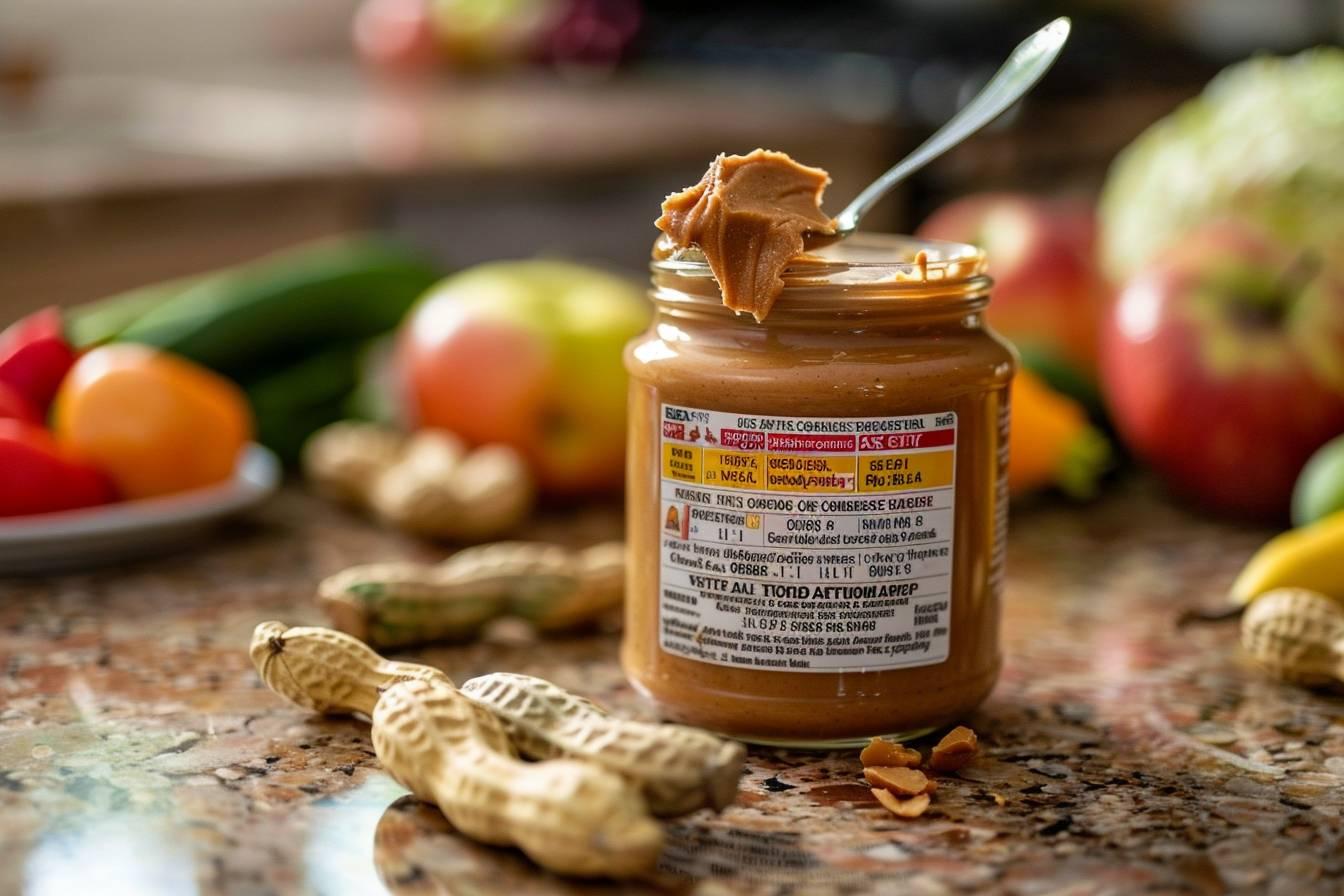Peanut butter is a calorie-dense spread with numerous health benefits when consumed in moderation. Here’s a quick overview :
- Nutrient-rich : High in protein, healthy fats, vitamins, and minerals
- Calorie content : 180-200 calories per 2-tablespoon (32g) serving
- Heart health : Contains monounsaturated and polyunsaturated fats beneficial for cardiovascular health
- Portion control : Important due to high calorie density
Peanut butter is a beloved spread known for its rich, creamy texture and nutty flavor. However, many people wonder about its nutritional content, particularly the calories in peanut butter. This article delves into the caloric content of peanut butter, its nutritional facts, and the potential health benefits of this protein-rich spread.
Nutritional facts of peanut butter
Peanut butter is a calorie-dense food, primarily due to its high fat content. A typical 2-tablespoon (32g) serving of peanut butter contains approximately :
- 180-200 calories
- 16g of fat
- 7-8g of protein
- 6-7g of carbohydrates
It’s worth noting that about 72% of the total calories in peanut butter come from fat. However, these are mostly healthy monounsaturated and polyunsaturated fats, which are beneficial for heart health.
Peanut butter is also a good source of various vitamins and minerals, making it a nutrient-dense food. Here’s a breakdown of its nutritional content in a tabular format :
| Nutrient | Amount per 2 tbsp (32g) |
|---|---|
| Calories | 180-200 |
| Fat | 16g |
| Protein | 7-8g |
| Carbohydrates | 6-7g |
| Fiber | 2g |
It’s important to note that commercial peanut butters may have added sugars and oils, which can increase the calorie content. Natural peanut butter, on the other hand, typically contains about 190 calories per 2-tablespoon serving.
Health benefits of peanut butter
Despite its high calorie content, peanut butter offers several health benefits when consumed in moderation. Here are some potential advantages :
1. Protein-rich spread : With 7-8g of protein per serving, peanut butter is an excellent plant-based protein source. Protein is essential for muscle building, tissue repair, and overall body function.
2. Appetite control : The combination of protein and fiber in peanut butter may help control appetite. This can be beneficial for weight management, as it may reduce overall calorie intake throughout the day.
3. Heart health : The monounsaturated and polyunsaturated fats in peanut butter are associated with improved heart health. These healthy fats can help lower bad cholesterol levels and reduce the risk of heart disease.
4. Nutrient-dense : Peanut butter is rich in various vitamins and minerals, including vitamin E, magnesium, and potassium. These nutrients support overall health and well-being.
While peanut butter can be part of a healthy diet, it’s crucial to consider its calorie content in relation to your overall daily calorie intake. Just as electric vehicles can revolutionize transportation, understanding the nutritional value of foods like peanut butter can transform your approach to healthy eating.

Incorporating peanut butter into a balanced diet
Given its high calorie density, portion control is key when consuming peanut butter. Here are some tips for incorporating this nutritious spread into a balanced diet :
1. Use as a protein boost : Add a tablespoon of peanut butter to your morning smoothie or oatmeal for a protein boost.
2. Pair with fruits or vegetables : Spread peanut butter on apple slices or celery sticks for a satisfying, nutrient-rich snack.
3. Choose natural options : Opt for natural peanut butter without added sugars or oils to maximize nutritional benefits.
4. Try peanut butter powder : For a lower-calorie alternative, consider using powdered peanut butter (PB2), which has fewer calories per serving than traditional peanut butter.
It’s worth noting that almond butter, a popular alternative, has a similar calorie content to peanut butter (about 98 calories per tablespoon). When choosing between nut butters, consider your personal taste preferences and nutritional needs.
Peanut butter alternatives and variations
For those looking to explore beyond traditional peanut butter, there are several alternatives and variations available :
- Almond butter : Similar in calories but higher in vitamin E and fiber
- Cashew butter : Creamier texture, rich in iron and zinc
- Sunflower seed butter : Nut-free option, high in vitamin E and magnesium
- Peanut butter powder : Lower in calories and fat, but also lower in healthy fats
Each of these options offers unique nutritional profiles and flavors, allowing you to diversify your diet while still enjoying the benefits of nut and seed butters.
In conclusion, while peanut butter is high in calories, it’s also packed with nutrients that can contribute to a healthy diet. By understanding the caloric content and nutritional benefits of peanut butter, you can make informed decisions about incorporating this delicious spread into your meals and snacks. Remember, moderation is key, and peanut butter can be part of a balanced, nutritious diet when consumed mindfully.
